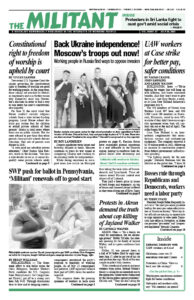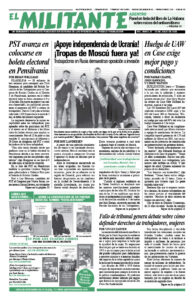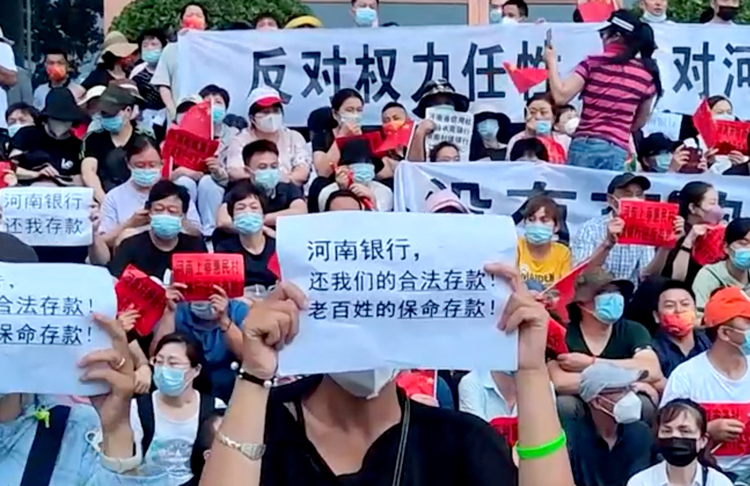On July 10 Beijing authorities violently attacked a peaceful protest of more than 1,000 people outside the local branch of the People’s Bank of China in Zhengzhou, the capital of Henan province. They were demanding the government protect their rights and return their life savings from four rural banks there. Banners read: “We are opposed to unchecked power” and “Give us back our legal deposits, the people need their deposits for survival.”
Those banks have frozen millions of dollars since April. Images of the government’s brutal response to the demonstration, one of the largest in China since the pandemic, spread quickly on the internet, outrunning the country’s online censors and sparking a wave of criticism against the government.
“What have the ordinary people done wrong?” wrote one user of China’s Weibo social media. “They get beatings after they lost their money?”
Rural banks in China — like the four in Zhengzhou — are notorious for profiteering. Banking regulators accuse them of financial crimes and suggested those who have lost their savings are “consumers of financial products,” not depositors, and may not be covered by deposit insurance.
China’s broader economic slowdown and the widening impact of COVID-19 lockdowns could shatter more financial institutions and hit working people with disaster. Many of the protesters said they are now destitute.
“We came all the way to Zhengzhou to get our money back, and we didn’t want to have conflict with anyone,” Feng Tianyu, a pregnant 31-year-old, told the press. She said men dressed in white shirts pulled her by her hair and arms onto a bus where the police beat the demonstrators. She was eventually taken to a hospital for stomach pains, but was refused admission.
Another protester, Sun, said he was covered in bruises from being repeatedly stomped by security guards. “The incident completely overturned my perception,” he said. “I’ve lived all my life placing so much faith in the government. After today, I’ll never trust it again.”


